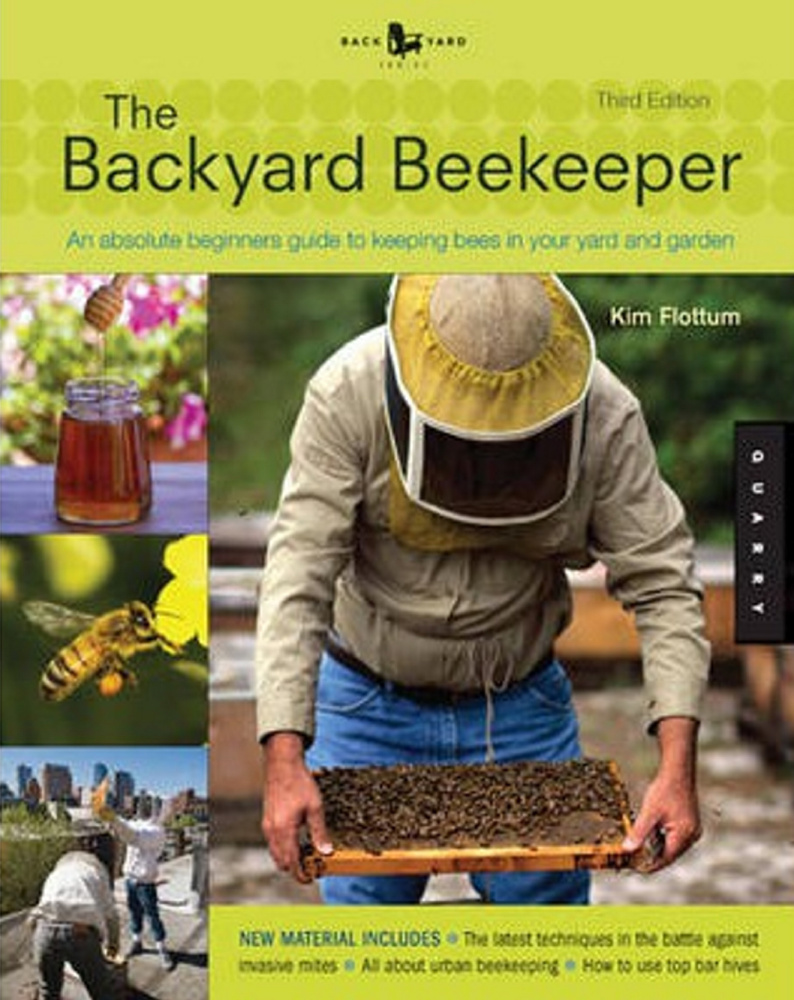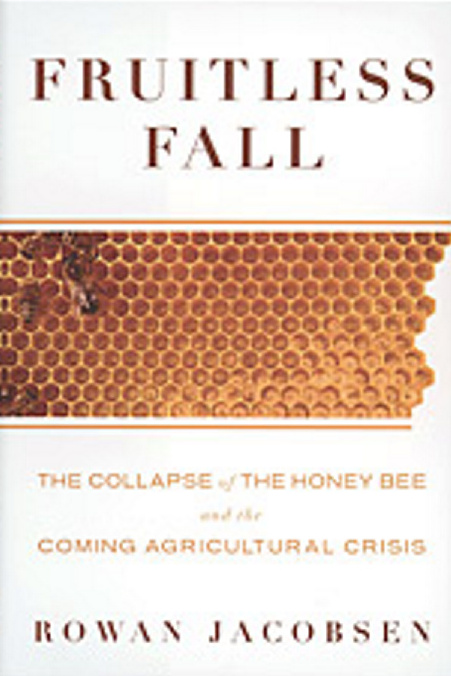This week, JEN ROWLAND, education programs assistant at Wolfe’s Neck Farm, offers two recommendations. She has been reading books about beekeeping over the last year to prepare for her most recent hobby and job responsibility – keeping bees at the farm.
“The Backyard Beekeeper: An Absolute Beginner’s Guide to Keeping Bees in Your Yard and Garden,” by Kim Flottum.
We read “The Backyard Beekeeper” for a wonderful beginner beekeeping course I took at The Honey Exchange in Portland. The book was fascinating and helpful as I began my journey into beekeeping, and it has continued to serve as a resource as I enter my second season. As a complete “newbee,” I appreciated the easy-to-read and informative text on everything from honeybee anatomy, biology, breeds and behavior to beekeeping equipment and assembly. The book also covers a variety of beekeeping practices in-depth – from the basics such as lighting a smoker and managing a newly arrived package of bees, to the more advanced challenges such as working with a swarm and troubleshooting honeybee pests and diseases. “The Backyard Beekeeper” is instructive. Beyond that, it’s been really interesting learning about the honeybee lifecycle and how honeybees communicate. The bees convey information about the location and value of a food source by “dancing” in the hive, and through this dance, other bees are able to determine where a specific food source is in relation to the hive and the sun. Isn’t that amazing? If you’re considering keeping honeybees, I highly recommend “The Backyard Beekeeper.”
“Fruitless Fall: The Collapse of The Honey Bee and the Coming Agricultural Crisis,” by Rowan Jacobsen.
When I first started exploring the practice of beekeeping, “The Backyard Beekeeper” was tremendously helpful. But I didn’t fully grasp the “why” of beekeeping. I knew it was important to support our pollinators – both for their welfare and ours – but I didn’t fully understand the role honeybees play in our agricultural systems, nor the implications of the much-speculated-about Colony Collapse Disorder. After finding “Fruitless Fall” on a recommended reading list from The Honey Exchange, I picked up a copy at the Portland Public Library and flew through it. The book delved into the history of beekeeping and the efficiency and productivity of honeybees, while also exploring what has led to their (and other pollinator species’) drastic declines in recent years. Not only are honeybees essentially a keystone species in our modern agricultural systems, I learned, but also Colony Collapse Disorder is likely due to a variety of factors, among them the widespread use of neonicotinoid pesticides, the spread of bee viruses and poor bee nutrition (due to habitat loss). For anyone interested in learning more about honeybees, native pollinators, and their alarming declines – as well as the U.S. pollination industry as a whole – “Fruitless Fall” is an engaging, fascinating must-read.
Open Book is an occasional series in which we ask Mainers to tell us about sustainability-related books they are reading.
Send questions/comments to the editors.




Success. Please wait for the page to reload. If the page does not reload within 5 seconds, please refresh the page.
Enter your email and password to access comments.
Hi, to comment on stories you must . This profile is in addition to your subscription and website login.
Already have a commenting profile? .
Invalid username/password.
Please check your email to confirm and complete your registration.
Only subscribers are eligible to post comments. Please subscribe or login first for digital access. Here’s why.
Use the form below to reset your password. When you've submitted your account email, we will send an email with a reset code.